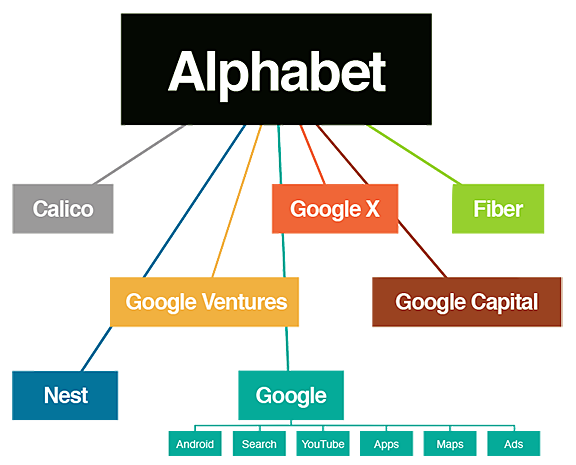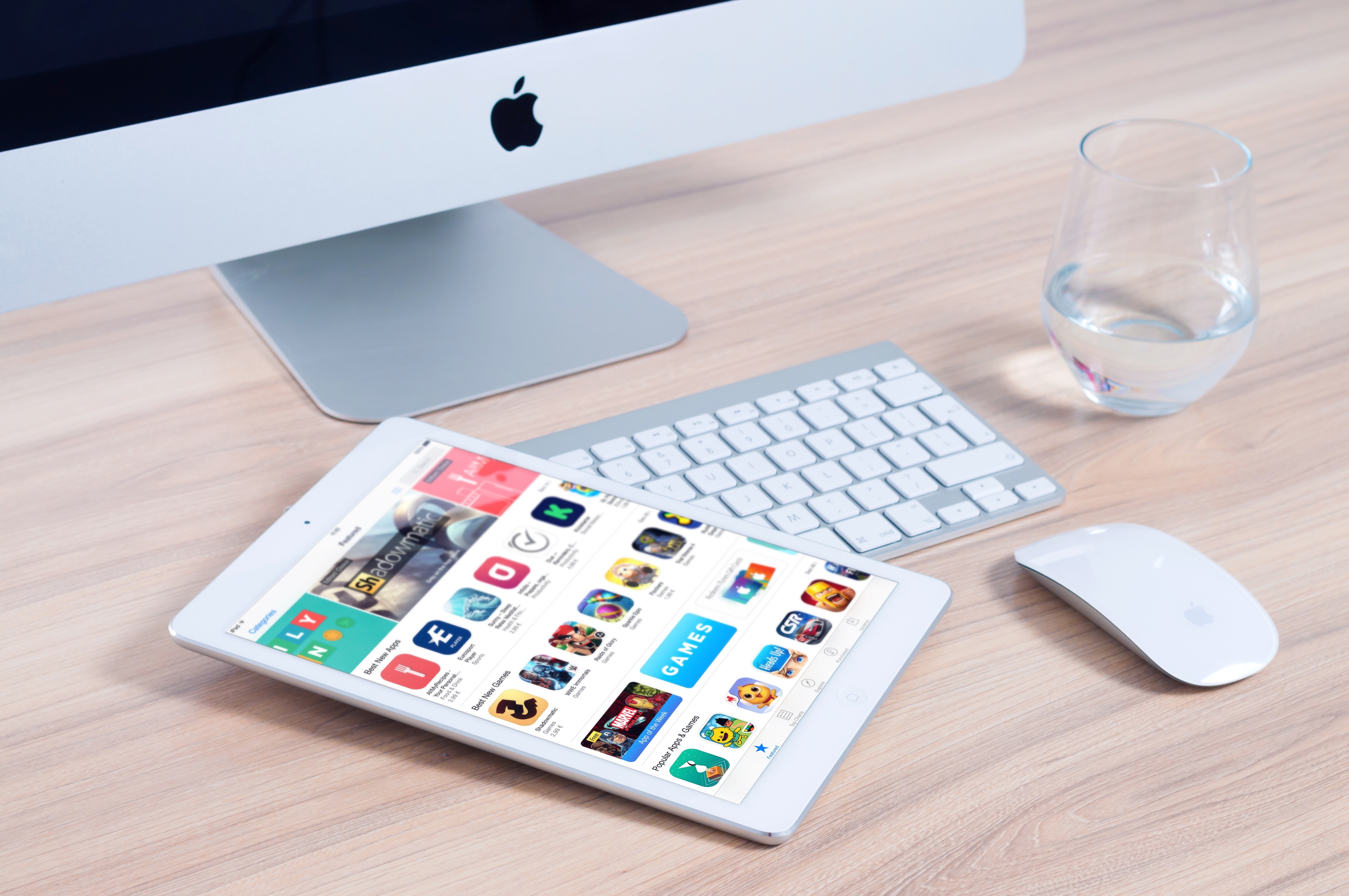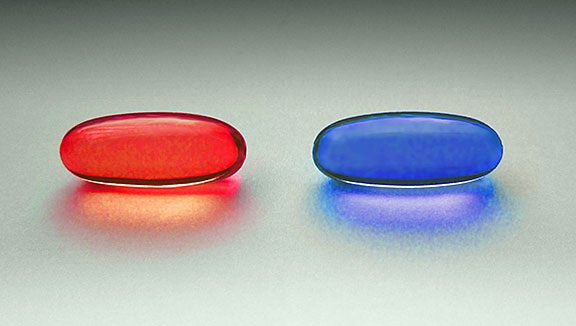Choose a Pill
It was many years ago now, on the then Time Warner Point ‘n’ Click show that I found what I considered a treasure: Google. Unlike many of the search engines of the day, Google wasn’t tied to a publishing, all-encompassing platform like Yahoo or Hotbot. Its sole purpose was to “index all the information in the world.” Its “algorithm” was geek: relevance to your search string. The more a term or string of words showed up in a particular website, and the more often that website was selected as the “winner” from what was served up, the higher it ranked – the closer to the top of the first page of results – it appeared. It delighted me, and amused my co-hosts, when a subject would come up and I’d type in some words or a phrase, and within a couple of minutes, even seconds, come up with a result worth sharing with our audience for further information, once our experts had dealt with the question. I was smitten with Google.
“Google it,” became a sentence, “google” being the verb, though legend has it that googol (10 to the 100th power) was the name assigned to the highest number that could possible be considered. Soon, of course, smart programmers learned to load a website with the words and phrases that increased its relevancy, and the game was on. How many ways could a site be “spammed” before Google figured out what was going on and forbade the practice (like adding invisible text to a page that would add to the relevant-word count, but not show up as nonsense to the visitor)? In the early days, Google didn’t “sell” its top results as other search engines did, so most of us were delighted when, clicking on one of the top 5 or so results would provide decent results.
Google experimented with programmed searches; if you typed a search in with a particular set of parameters, like “define:word” you would get a more specific result, in that case, the definition of a term. Natural language searches, “must contain,” “do not include” and other parameter searches made for even better results.
In our modern era, the computer, whether a laptop, tablet, or smart phone – even an old desktop – has become a routine part of our day, and we rely on these devices more and more for information. And, as a result, here come the problems: Big Tech, platforms versus publishers, and censorship versus free speech.
Let’s start with the most fundamental: free speech. This is a right guaranteed by the Constitution. You can say a wide variety of things so long as what you’re saying doesn’t incite violence. Today, though, speech itself has been defined as violence – and while technically that may be an overstatement, what we “feel” is given greater weight today than at any time since the Romantic Era. Though we have the freedom to speak, however, we are not guaranteed the platform. Yes, you can get a soapbox and set it up on a street corner and express your opinions. You can write a book; it may or may not get published, and even if published, it may not be accepted for sale through any of the regular channels.
Now add Big Tech: Google (Alphabet is the holding company that owns Google, which owns YouTube), which originally simply indexed websites (what was said wasn’t judged for merit or viewpoint, merely relevance), now not only accepts advertising (86% of Alphabet revenue comes from user clicks using Adsense and Google Ads), but actively censors content, promoting some results and demoting others, via actual review and censorship of information. And of course, if any technology company or organization holds all the important keys to the kingdom – is that organization a monopoly, and do we “trust bust” it?
So let’s go to the platform versus publisher discussion. If a publisher, Alphabet/Google would be very much within its rights to choose what it published and what it did not. But importantly, it would also be liable for what was published and what was not. By demoting some results and promoting others, does the tech giant de facto become a publisher – and is it then liable for any of its questionable content? Would we, as consumers, really want that?
There has been an enormous amount of discussion in recent months about “demonetization,” and “banning” or “shadow-banning” of individuals YouTube channels, Twitter feeds, and other means of reaching the public with opinion, even comedy shows. As more and more people move to online for entertainment and information, realizing they can make a very fine income from direct support or importantly, advertising support based on numbers (how many people subscribe, how many followers someone has on Twitter, etc.) “demonetization” is like taking the food off their table. Banning them outright is a total disaster.
Recently, Facebook announced its intent to “fact-check” information (specifically political) shared on its platform. Remember, Facebook earns most of its revenue by selling your freely offered personal information to marketing firms. I had an amusing but alarming experience recently of sharing a joke to a private group, only to have it “fact-checked” by Facebook and found wanting – with no further explanation. Had it not been obviously a joke, I might have been alarmed; as it was, I could laugh and shake my head in bewilderment. But more and more, I see notices that something someone posted has been removed for violation of the fact-checkers’ stamp of approval.
As you may have guessed, I look at this as something of a circular firing squad. Along comes a technology that allows us to almost instantaneously access all the information in the world, and its free. The world cheers. The technology becomes more and more concentrated in fewer and fewer hands, and the world doesn’t really notice – they’re too intent on buying things online, or finding the perfect recipe for guacamole. The technology becomes a paid system, but not by the users – by the people talking to the users, so the richer the speaker, the bigger the audience. The will of the tech company and the advertisers begins to shrink all the information in the world to “all the news we think is fit to print.” The world tries to start some competitors, but thus far, there are few viable options. A popular meme that originated in the film The Matrix is “red-pilled.” Being “red-pilled” means choosing the red pill over the blue pill: if you take the red pill, you wake up to the “real” world. If you take the blue pill, you go back to sleep and dream happy dreams.
When I was a kid, there were two papers in town: the Republican paper and the Democrat paper. Some people read both, most subscribed to the one that suited their view of things. But what do you do for your news when there is only one paper in town? How do we know that the pill we’re taking is really red or blue?










